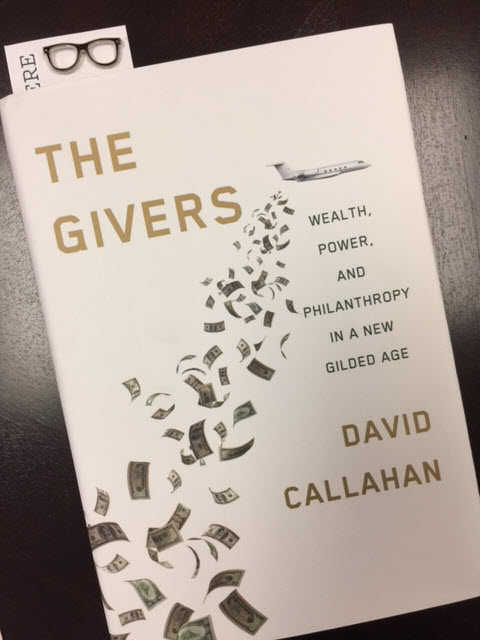 You honestly do want to read it. You spent the money on it. It’s just sitting on your desk or your shelf.
You honestly do want to read it. You spent the money on it. It’s just sitting on your desk or your shelf.
Very innocently. But making you feel guilty.
That work-book you bought.
I’ve got a few books like that on my office shelf. Some that I’ve started and abandoned after an interested afternoon, and others that I haven’t even cracked open yet. (but I will! I swear!)
But now, a solution.
Last week, some of my HBG colleagues and I – independent of each other – watched a vidcast of David Callahan and Emmett Carson in a fascinating, spirited, and sometimes provocative debate sponsored by Philanthropy New York. Callahan is the founder and editor of Inside Philanthropy, and author of the new book The Givers; Wealth, Power, and Philanthropy in a New Gilded Age. Carson is president of the Silicon Valley Community Foundation, the largest community foundation in the world, with $8 billion+ in assets. [Read more…]









